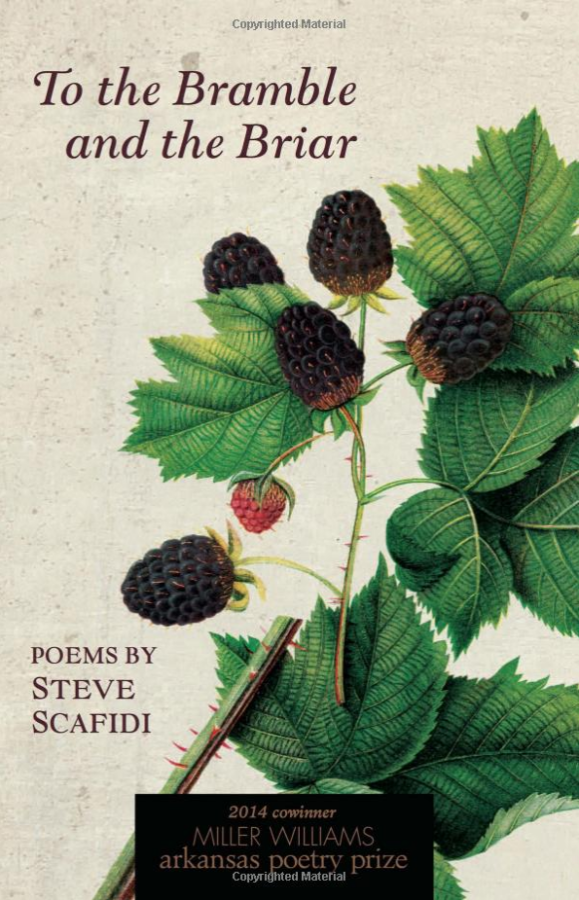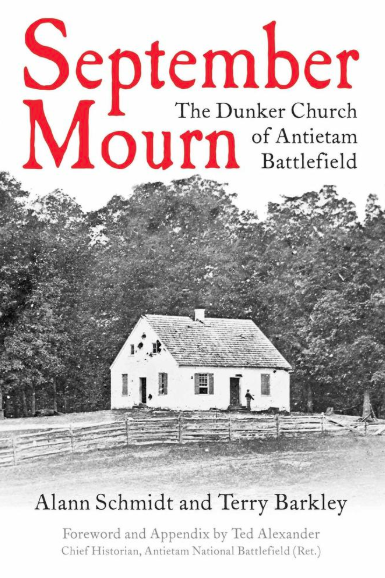To the Bramble and the Briar by Steve Scafidi. University of Arkansas Press, 2014. Paper, ISBN: 978-1557286512. $16.95.
 It’s 1901. We stare into a freshly opened coffin “to verify it was him— / Abraham Lincoln—lying so long dead inside.” Just before the box is re-sealed, a worker “reached a fingertip in to touch / the mole above the dead man’s lip. He said it felt like / the shock he got as a boy in a storm he thought was over.”
It’s 1901. We stare into a freshly opened coffin “to verify it was him— / Abraham Lincoln—lying so long dead inside.” Just before the box is re-sealed, a worker “reached a fingertip in to touch / the mole above the dead man’s lip. He said it felt like / the shock he got as a boy in a storm he thought was over.”
With Lincoln’s still-charged body, Steve Scafidi orients us to his poetry collection To the Bramble and the Briar. Set in Civil War America, the collection evokes a long passed storm that still can shock.
The beautifully plain-spoken poems don’t lack the usual fixtures of history: generals and battles, politics and presidents. Yet their contact with the familiar is unexpectedly visceral, often a shock. The ordinary is juxtaposed with the weird to illuminate the extraordinary paradoxes, ideals and disillusionments of Lincoln’s place and time.
On a sleepless night, Lincoln wanders the corridors of the White House with a dog: “and so they spoke awhile / of the cause of the Union / and the trouble with generals / who will not fight and of the arc / and flight of hickory sticks / thrown, really heaved up into / the blue sky so that it seems / they will never come down.”
And isn’t this what happened at Antietam? A farmer bred a cavalry of winged appaloosas, and watched as the President mounted one and laughed “as the creature / bucked hard and jumped in the air. / The Department of War bought all / of the horses, which were shot from / the sky one at a time over Sharpsburg, / falling into the houses like bombs.”
Here’s what it was like for President Lincoln at Gettysburg: “He smelled the citrus / perfumes of the dignitaries / mixing with sweat. / Mostly though he listened / and bowed. / Not far below him under- / ground the leg bone of a boy / from Ohio, buckles, teeth, / and rounds.”
If you like Grant, be prepared to be offended by Mary Todd Lincoln, who calls her husband’s favorite general “the little goblin,” and “did not like his calm / demeanor, his / half-opened eyes / his gait like / a melody of / the darkest keys / on the piano.” Whether or not you share Mrs. Lincoln’s sentiment, the words put you right in the room with these long-dead men and women.
The power of Scafidi’s book is to convince you, nearly, that such imaginings really happened, part of the surreal, gritty pageantry of Civil War America, bloody, sentimental, dark and bright. The direct simplicity of the words — no poetic discourse here — and the vividness of the imagery say it must have been so. Somehow.
It’s almost a stretch to call such a deeply imaginative volume “historical poetry.” Yet its stories are, in some respects, truer than the scholarly accounts in our beloved books and essays. Scafidi’s poetry voices those elusive truths that we reach for when standing alone on a monument-strewn battlefield, wandering a sleepy National Cemetery, coming face to face with the photograph of an unnamed soldier, or with one of the many images of himself bequeathed to us by the man who presided over the War, “the beard a shallow / scorched ravine of bramble / and briar growing over bones.”
Jean Huets is a contributor to the New York Times Disunion blog. Her interactive book, Walt Whitman and the Poem of the Body, will be published in spring 2015.
